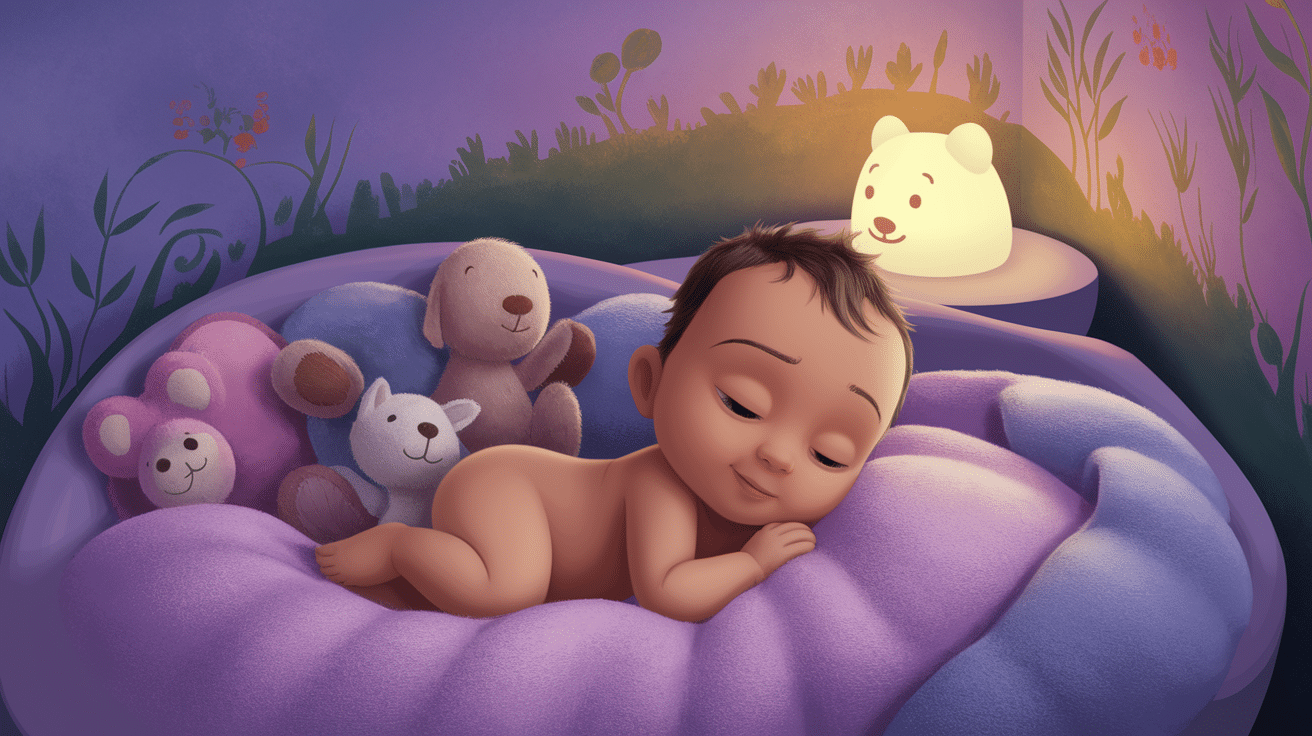Welcoming a newborn into your life comes with an unexpected challenge that leaves many parents exhausted and bewildered: the seemingly endless battle of getting your baby to sleep.
What appears to be simple resistance is a complex interplay of developmental, physiological, and emotional factors.
Newborns aren’t deliberately trying to torture their parents but are navigating a world of new sensations, immature sleep cycles, and rapidly developing neural connections.
Understanding the underlying reasons behind sleep struggles can transform frustration into compassion, helping parents approach their infant’s sleep challenges with patience and strategic support.
Why Newborns Fight Sleep?
The travel of parenthood is often punctuated by sleepless nights and endless attempts to soothe a restless newborn.
Many parents find themselves exhausted and perplexed as their tiny infants seemingly resist the very thing they desperately need: sleep.
This universal challenge can be both emotionally and physically draining, leaving caregivers feeling frustrated and overwhelmed.
Understanding the underlying reasons why newborns struggle to fall and stay asleep is crucial for developing effective strategies to support their rest.
From developmental changes and sensory overload to hunger, discomfort, and emerging sleep patterns, multiple factors contribute to a newborn’s resistance to sleep, making it a complex and nuanced aspect of early childhood development.
Developmental Factors Affecting Sleep Resistance

Newborns face various developmental factors that can contribute to sleep resistance. One of the key factors is their immature nervous system, which affects their ability to self-soothe and regulate sleep. This often leads to frequent awakenings and difficulty staying asleep.
Additionally, babies undergo rapid growth and brain development during the first few months, which can cause restlessness and discomfort during sleep.
The need for feeding, growth spurts, and increased awareness of their environment can also disrupt sleep. As babies grow, their sleep patterns begin to mature, and they gradually develop the ability to distinguish between day and night.
However, these developmental milestones can temporarily increase sleep resistance as they adapt to their changing needs and sensory experiences.
Immature Sleep Cycles
Newborns’ sleep cycles are shorter and less structured compared to adults, which can lead to frequent waking and disrupted sleep patterns.
This immaturity in their sleep cycle is one of the key reasons for sleep resistance in infants.
- Sleep cycles last only 50-60 minutes
- Frequent transitions between light and deep sleep
- Difficulty maintaining sleep consistency
- Increased vulnerability to waking easily during light sleep
As babies mature, their sleep cycles gradually lengthen, helping to promote more restful sleep.
Development of Circadian Rhythm
The development of a newborn’s circadian rhythm plays a crucial role in sleep patterns. In the early months, babies lack a fully developed circadian rhythm, making it difficult for them to distinguish between day and night.
This often results in erratic sleep patterns. Over time, as their internal clock matures, babies begin to follow more predictable sleep-wake cycles, leading to better sleep consistency and fewer night wakings.
Separation Anxiety and Sleep Struggles
Separation anxiety is a significant psychological factor affecting newborn sleep. As babies begin to form emotional bonds with their caregivers, the fear of being left alone can lead to resistance to sleep.
This anxiety often peaks around 8-9 months but can occur earlier. When babies sense their caregiver’s absence, they may become distressed, making it difficult for them to settle into sleep.
- Increased attachment to primary caregivers
- Distress when separated from caregivers
- Difficulty falling asleep independently
- Waking frequently in search of comfort
| AGE | SEPARATION ANXIETY | SLEEP IMPACT |
|---|---|---|
| 6-8 months | Beginning of attachment | Frequent night wakings |
| 9-12 months | Strong attachment bond | Difficulty falling asleep alone |
| 12+ months | Increased awareness | May seek comfort to fall asleep |
Environmental and External Influences on Sleep Behavior

Numerous environmental and external factors profoundly impact sleep behavior. Temperature plays a critical role, with optimal sleeping conditions typically ranging between 60°F and 67°F, as cooler environments promote deeper, more restful sleep.
Light exposure significantly influences circadian rhythms, with blue light from electronic devices disrupting natural sleep-wake cycles.
Noise levels can significantly impact sleep quality, with unexpected sounds triggering micro-awakenings that disrupt sleep patterns.
Humidity, air quality, and bedroom ergonomics also contribute to sleep disturbances.
Additionally, external stressors such as work pressure, relationship dynamics, and psychological concerns can alter sleep architecture, resulting in reduced sleep duration and compromised sleep efficiency.
Noise and Light Sensitivity
Individuals exhibit varying degrees of sensitivity to environmental stimuli during sleep, with noise and light playing pivotal roles in disrupting rest.
Low-frequency sounds and intermittent noises can trigger physiological responses, causing increased heart rate and cortisol production.
Similarly, light exposure—particularly blue-spectrum wavelengths—interferes with melatonin secretion, challenging the body’s natural sleep-wake cycle and potentially leading to fragmented, low-quality sleep patterns.
Overstimulation
In today’s hyper-connected world, overstimulation has emerged as a critical barrier to healthy sleep patterns.
The constant bombardment of sensory and cognitive inputs creates a challenging environment for natural rest and relaxation.
- Mental and sensory overload significantly impacts sleep preparation, creating heightened arousal that prevents natural relaxation and sleep onset.
- Digital device usage before bedtime floods the brain with stimulating content, increasing cognitive activity and delaying the transition to rest.
- Chronic overstimulation can lead to prolonged sleep latency, reduced sleep duration, and altered sleep architecture, compromising overall sleep quality and next-day functioning.
Understanding and mitigating these overstimulation factors becomes crucial for developing effective sleep hygiene and maintaining optimal cognitive and physical well-being.
Tips to Help Your Newborn Sleep Better
Navigating the complex world of infant sleep can be challenging for new parents. Understanding effective strategies to promote better sleep is crucial for both the baby’s development and parental well-being.
By implementing thoughtful approaches, parents can create a supportive sleep environment that encourages more restful and consistent sleep patterns.
- Establish a consistent bedtime routine, such as a warm bath, gentle massage, or soft lullaby, to signal sleep time.
- Create a calm, dark sleeping environment with white noise to minimize disruptions and mimic womb-like conditions.
- Practice swaddling to provide a sense of security and prevent startle reflexes from interrupting sleep.
- Recognize and respond to early sleep cues before the baby becomes overtired.
- Use gentle, rhythmic movements like rocking or swaying to help soothe the baby to sleep.
Patience and consistency are key in developing healthy sleep habits. Remember that every baby is unique, and finding the right approach may take time and gentle experimentation.
Wrapping it Up
The process of helping a newborn establish healthy sleep patterns is a delicate balance of understanding, patience, and gentle guidance.
While sleep resistance can feel overwhelming, it’s a normal part of infant development that gradually improves with time.
By creating a supportive sleep environment, recognizing individual needs, and maintaining consistent routines, parents can help their babies develop more stable sleep habits.
The key is to remain flexible, compassionate, and attuned to your baby’s cues and comfort needs.
















